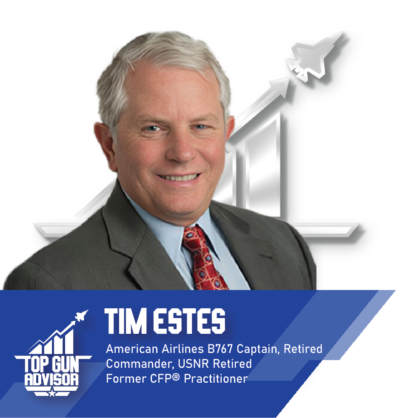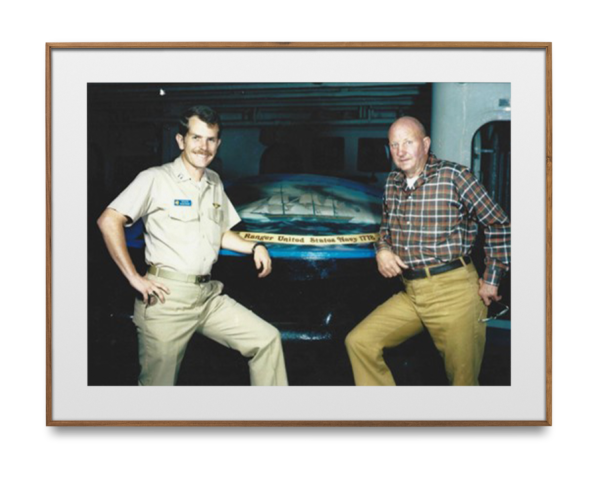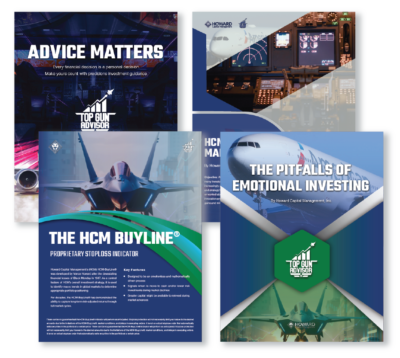Tim Estes
American Airlines B767 Captain, Retired
Commander, USNR Retired
Former CFP® Practitioner

Tim Estes,
American Airlines B767 Captain, Retired
Commander, USNR Retired
Former CFP® Practitioner
Tim Estes, the founder and CEO of Estes Financial Services Inc., is an accomplished figure in the financial services industry. With a background spanning over three decades, he has made significant contributions to retirement planning and financial management. Tim is also co-founder of Top Gun Advisor, a company committed to aiding individuals in effectively managing their 401k investments.
His prior qualifications encompass Certified Financial Planner® (CFP), Chartered Retirement Planning Counselor (CRPC), Accredited Investment Fiduciary (AIF), and Chartered Federal Employee Benefits Consultant (ChFEBC) designations.
Tim is a noted lecturer and author. He has written an investment advice column for MD News, a regional magazine dedicated to physicians. His financial expertise has been sought out and quoted in Forbes magazine, the Fort Worth Star-Telegram and the Fort Worth Business Press. He’s also been a guest commentator on BizRadio. Tim lectures frequently on investor education topics for his clients, as well as civic organizations and local business owners. Specialty topics include retirement, retirement plans, Social Security, TSP’s, 401-K, IRA, Roth IRA, Simple-IRA, Executive Deferred, and Compensation Plans.
After attending Texas A&M University on a Navy ROTC scholarship, he graduated and was commissioned into the Navy where he began training as a Naval Aviator. Tim served his country proudly with over 20 years of Naval service. He retired as a Commander in 1999. Tim was a pilot for American Airlines for 29 years retiring as a Boeing 767 Captain. He is a life-long member of the Episcopal Church. Tim lives in the Dallas/Fort Worth area with his wife Julie and their Chesapeake Bay Retriever, Bella.
FINANCIAL FLIGHT PLAN: TOPGUN TACTICS FOR SUCCESSFUL INVESTING
I have been learning from the best financial advisors and educators in the industry since 1991. A few of them you may have heard of them, Mark Matson, Dan Cuprill and of course Nobel Laureate Dr. Eugene Fama of the University of Chicago. Planning for retirement can be stressful and mistakes in this planning can have drastic effects. I like to think about it in flying terms. There are many emergencies in an airplane that can be resolved and aren’t that big of a deal as long as we run the right checklists, stick to the plan, and of course, assuming we have enough fuel. However, if we fail to plan, and don’t divert, we tragically won’t reach our destination safely.
I’ll admit up front that I am sometimes guilty of not always being politically correct and sometimes say things that my wife explains to me as being “inappropriate.” So, for this, I will apologize in advance. I’m a former Naval Aviator, an Attack Pilot who flew the A-7E Corsair fighter/bomber and what’s more, a retired American Airlines Captain (Captain, B-767).


My Business partner, Brie Reyes (who is also my daughter), has seen firsthand how poor planning or lack of planning can affect someone. However, I want this book to be different. This is a book that is unlike any other personal finance book. My goal for this book is to be a book about personal finance and planning that has very few numbers.
I know there are enough books about investing and finance that have plenty of numbers, and I also know I am not smart enough to improve on them! This book is also short, and that is by design. One, because almost everything about finances has already been said, and two, because it is written to be short and to the point without any double speak or financial lingo.
In this book, we will describe and analyze many of the quantitative aspects of personal finance, but like most aircraft accidents, human behavior is to blame. The biggest obstacle to investor success is the investor’s OWN mistakes. We are only human, and as humans, we naturally want to avoid pain. We seek pleasure when we can, but the absence of pain is paramount.
In today’s society, this “survival mechanism” and affinity for “instant gratification” has also caused the average investor, according to the DALBAR Quantitative Analysis of Investor Behavior, to buy high (because winners bring pleasure and we want more of that) and to sell low (so we can avoid even more pain).
This emotional behavior by the average investor results in sub-par rates of return. The survival instinct that saved the caveman and allowed him to evolve is the same instinct that destroys the average investor’s portfolio.
As pilots, we don’t like turbulence, but that doesn’t mean we should ignore that it is out there or fly so low that we run out of fuel. We need to have a plan and make unemotional decisions based on aviation experience and not “get-home-itis.”
As investors, at the beginning, we accept the premise that returns will not be consistent and that there is inherent risk; but we totally forget it as soon as we suffer a down month, or God forbid, a down year. Rather than logically accept that returns, like life, are never linear, we panic, convincing ourselves that this time the apocalypse is real. Then, we emotionally sell or make some other emotional decision that hurts our portfolio and ultimately, our future.
Of course, once the zombies fail to appear at our doorstep in search of flesh, we then realize the error of our ways and start investing again…after the market has already recovered and we already cut off our own head, missing out on the recovery.
In addition to fighting the natural survivor tendencies of our brain, we are constantly inundated with the talking heads on Fox Business and CNBC. Or, what about Money Magazine and Kiplinger’s?
All of these entities don’t care about the actual market and how it works! They are in the business of selling ratings and magazines!
They realize they can sell more if they induce fear and promote greed. We need to see past this “financial porn” (I told you I wasn’t always politically correct) and not fall victim to the fear! Turn off the talking heads and focus on prudent academic investing principles. Get rid of the emotion.
Another major threat that the average investor must be rescued from is taxation. Unlike past generations, Baby Boomers and beyond must deal with the intricacies of having their retirement savings tied up in accounts like 401K’s, 403B’s, and IRA’s. We are now completely responsible for planning for our own retirements. Pensions are a thing of the past and are almost totally extinct.
Almost all of these accounts have never been taxed and Uncle Sam is smart. He will get his money. We are happy that the taxes have been “deferred” but ultimately, Uncle Sam is patiently waiting to tax you on the bigger portion that this account has grown to over time. You are business partners and Uncle Sam still hasn’t taken his cut. If you think all that money in your 401K is yours, you couldn’t be more wrong!
Uncle Sam will get paid eventually and with the ever-growing national debt and the looming social security crisis, do you think there is any chance that taxes might go up? The money is going to come from somewhere and I have a pretty good idea of who is going to be responsible for bringing money to the table.
And lastly, speaking of Social Security… When should I take it? Will it still be there? How is the government going to finance it? Will it be taxed? Will the tax on it continue to increase? And what about long term healthcare? Medicaid and Medicare? Many questions and no solid answers. Think this can add to the emotions when dealing with your finances?
So, now with all the responsibility, is the individual investor simply doomed to fail? I don’t think so. However, without getting help or understanding the challenges that you will be facing is like flying straight into a storm while having your radar turned off! You must turn on the radar and start understanding what is ahead of you, so that you might turn the odds in your favor. I urge you to come fly with and let’s explore these issues. So, let’s take off together, put the gear up, and start to navigate around this storm! – Tim Estes



